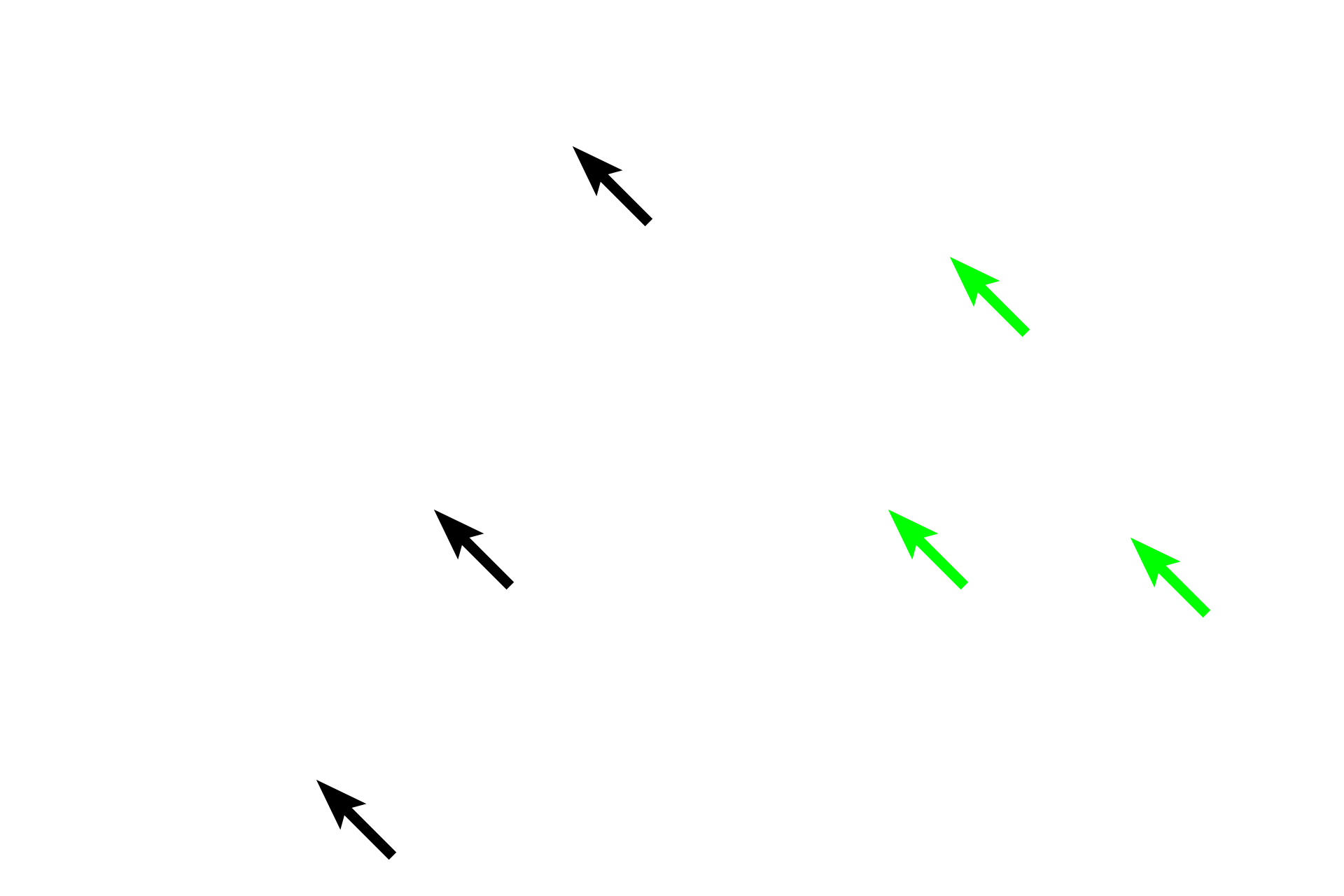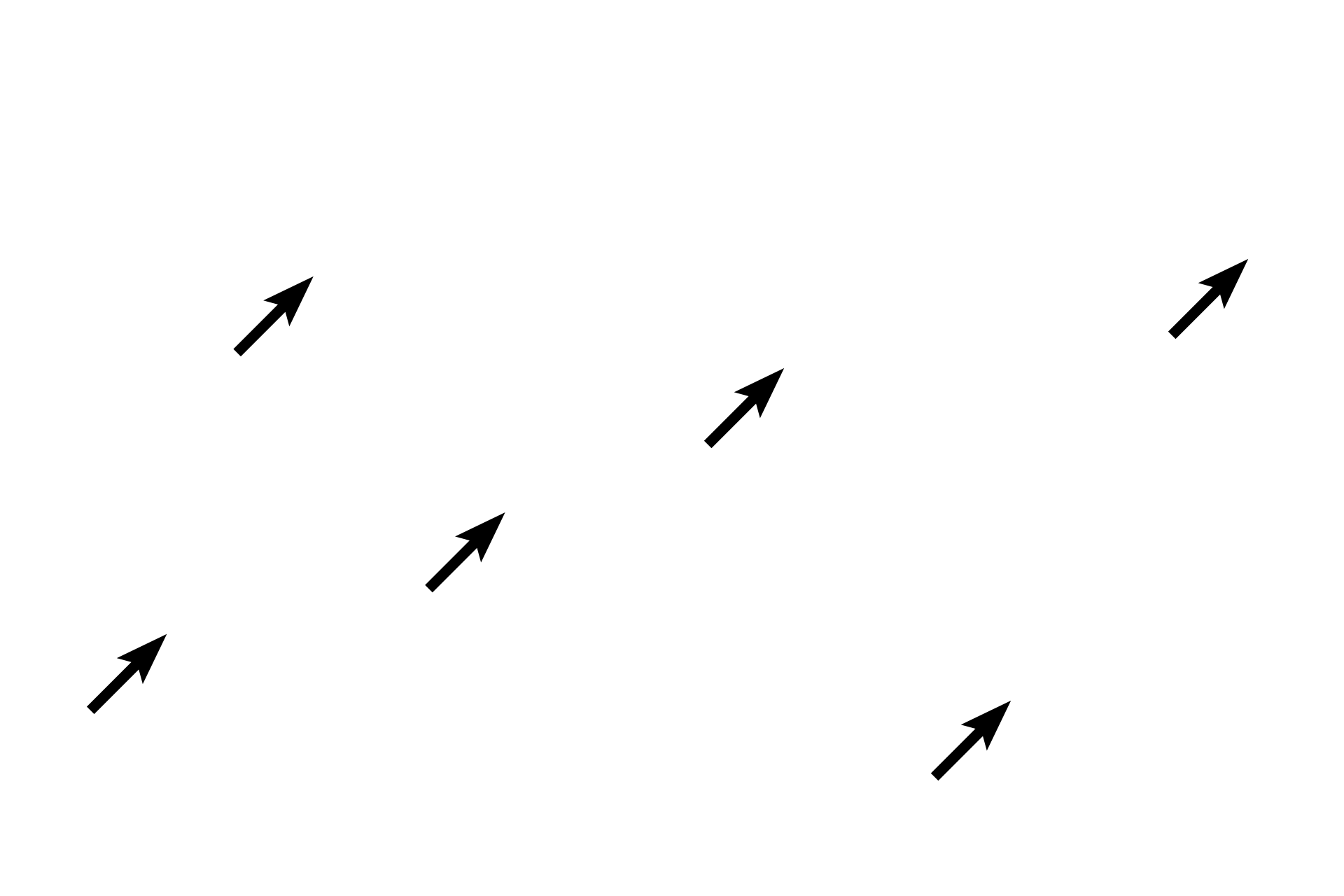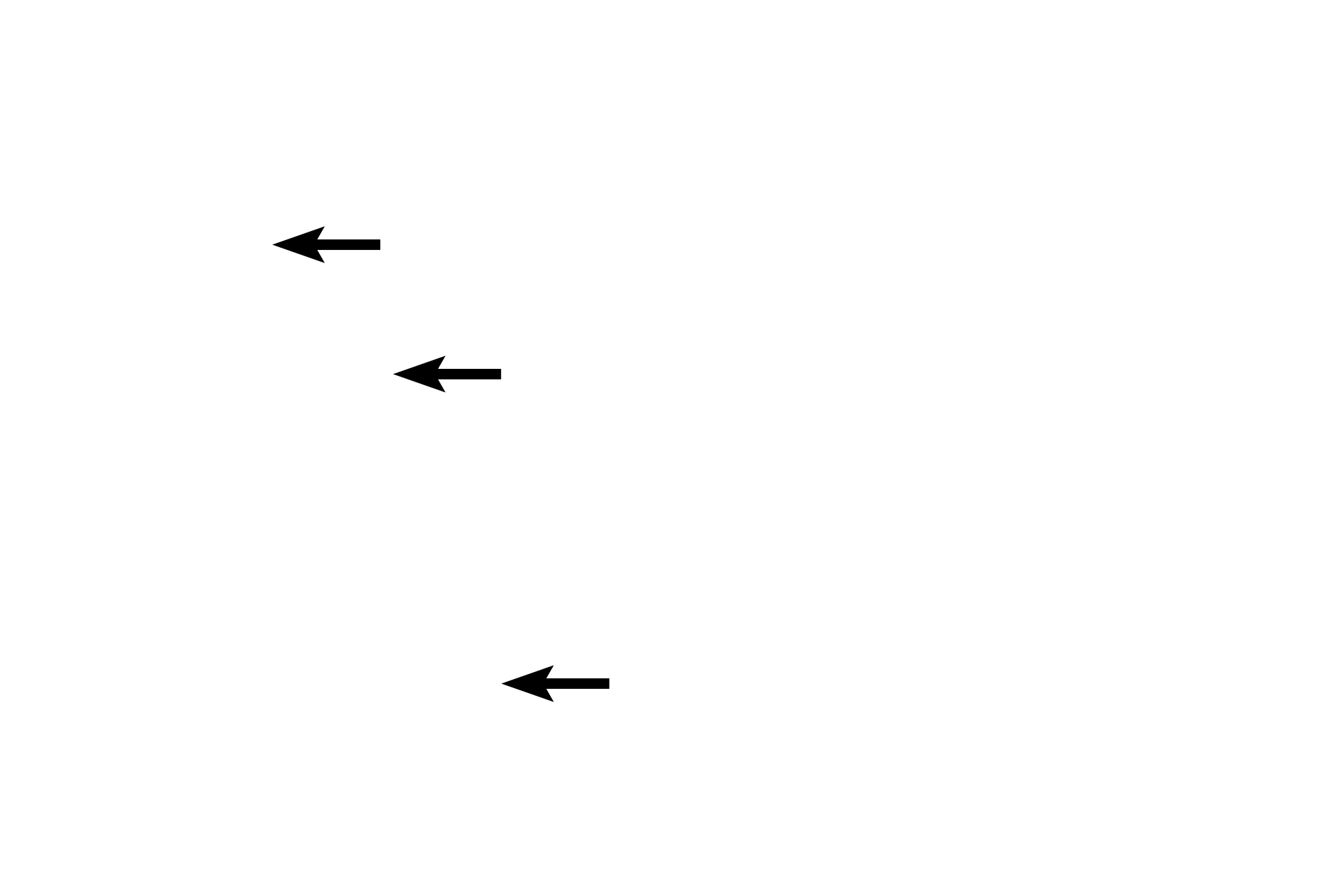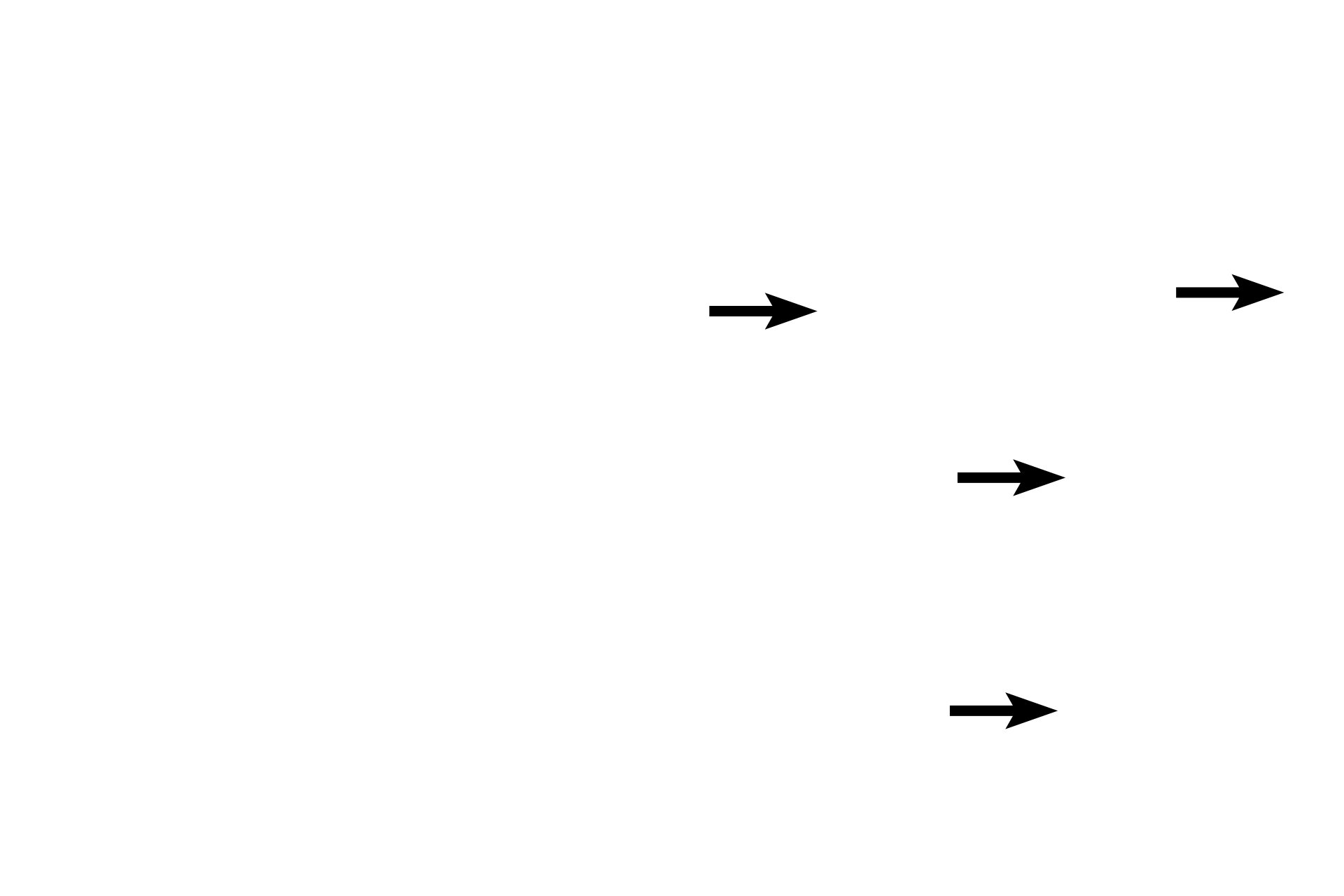
Connective tissue proper
Connective tissue consists of cells and an extracellular matrix composed of fibers (collagen, reticular and elastic), ground substance and tissue fluid. Ground substance, primarily proteoglycans, is present as a gel in connective tissue proper, where it surrounds cells and fibers, and serves as padding between other tissues and organs of the body. 400x, 400x

Fibroblast nuclei
Connective tissue consists of cells and an extracellular matrix composed of fibers (collagen, reticular and elastic), ground substance and tissue fluid. Ground substance, primarily proteoglycans, is present as a gel in connective tissue proper, where it surrounds cells and fibers, and serves as padding between other tissues and organs of the body. 400x, 400x

Adipocytes
Connective tissue consists of cells and an extracellular matrix composed of fibers (collagen, reticular and elastic), ground substance and tissue fluid. Ground substance, primarily proteoglycans, is present as a gel in connective tissue proper, where it surrounds cells and fibers, and serves as padding between other tissues and organs of the body. 400x, 400x

Ground substance
Connective tissue consists of cells and an extracellular matrix composed of fibers (collagen, reticular and elastic), ground substance and tissue fluid. Ground substance, primarily proteoglycans, is present as a gel in connective tissue proper, where it surrounds cells and fibers, and serves as padding between other tissues and organs of the body. 400x, 400x

Blood vessels
Connective tissue consists of cells and an extracellular matrix composed of fibers (collagen, reticular and elastic), ground substance and tissue fluid. Ground substance, primarily proteoglycans, is present as a gel in connective tissue proper, where it surrounds cells and fibers, and serves as padding between other tissues and organs of the body. 400x, 400x

Collagen fibers >
Collagen fibers, the most abundant of the connective tissue fibers, are produced by fibroblasts and stain pink with eosin. These fibers are flexible, but do not stretch and, thus, provide great tensile strength to the tissue. Smaller fibers may aggregate to form larger collagen bundles, and fiber size and orientation are used for classifying connective tissue proper.

Collagen bundles
Collagen fibers, the most abundant of the connective tissue fibers, are produced by fibroblasts and stain pink with eosin. These fibers are flexible, but do not stretch and, thus, provide great tensile strength to the tissue. Smaller fibers may aggregate to form larger collagen bundles, and fiber size and orientation are used for classifying connective tissue proper.
